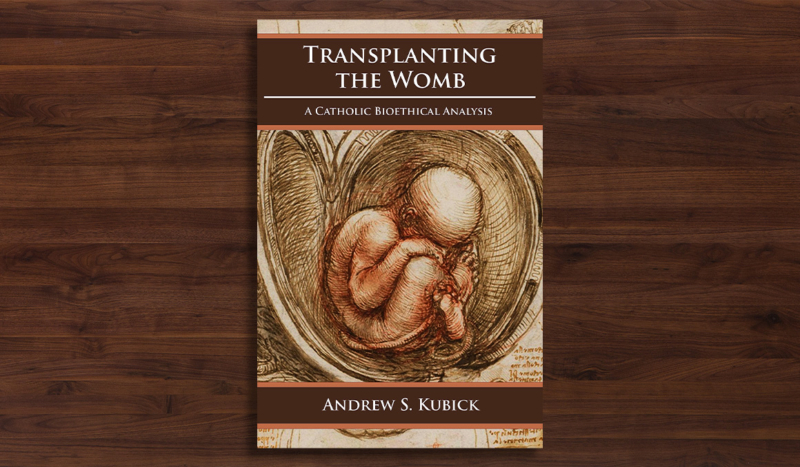
Amazon
CV NEWS FEED // Dr. Andrew S. Kubick presented his book, Transplanting the Womb: A Catholic Bioethical Analysis, at the Catholic Information Center in Washington, D.C., exploring the ethical implications of uterine transplantation (UTX). His talk offered a detailed overview of the technology, its historical development, and its moral evaluation from a Catholic perspective.
Dr. Kubick began by tracing the history of uterine transplantation, which emerged in the early 2000s as a potential solution for women with uterine factor infertility (UFI). The first successful transplant occurred in Sweden in 2012, resulting in six live births. Since then, over 100 uterine transplants have been performed worldwide, with at least 40 live births.
In the United States, Baylor University Medical Center has become a leader in the field, moving from clinical trials to an established program. Despite these advances, the technology raises significant ethical concerns.
Uterine transplants require either living or deceased donors, with each option presenting distinct risks. For living donors, the procedure is far more invasive than a standard hysterectomy, involving complex removal of blood vessels and ligaments. Deceased donors eliminate risks to the donor but introduce challenges such as time-sensitive surgical logistics and increased reliance on immunosuppressants for recipients. Dr. Kubick emphasized that every uterine recipient must take immunosuppressant drugs, which carry long-term health risks.
The expert underscored that the current protocols for uterine transplantation rely on in vitro fertilization (IVF), an intrinsically immoral act according to Catholic teaching. He described how IVF involves hyper-ovulation, the creation of multiple embryos, and often their freezing or destruction, which conflicts with the dignity of human life.
“As it stands now,” Dr. Kubick asserted, “every clinical trial and program in the U.S. requires an intrinsically evil act to qualify for uterine transplantation.”
Dr. Kubick explored the future of UTX, noting the potential for bioengineered uteri created from a recipient’s stem cells. This could eliminate the need for immunosuppressants and donor risks, but such developments remain speculative. Another emerging possibility that would be deeply unethical is the extension of uterine transplants to men, including those identifying as women. Dr. Kubick highlighted a talk where this idea was discussed as a matter of “justice,” reflecting broader societal trends toward expanding the definitions of candidates for UTX.
While secular proponents argue that UTX is a “quality of life” transplant comparable to kidney or liver transplants, Dr. Kubick challenged this notion. He questioned the prudence of exposing women and children to significant risks for a non-vital organ transplant, especially given the availability of adoption as a morally acceptable alternative.
“Just because we can doesn’t mean we ought,” he said, urging careful ethical analysis motivated by charity and a desire to alleviate suffering without compromising moral principles.
Dr. Kubick’s presentation also touched on the theological and philosophical dimensions of UTX. He outlined Catholic teaching on reproductive ethics, emphasizing the sanctity of natural conception. While he acknowledged the possibility of future methods aligning with Church teaching, such as natural conception, he concluded that the current reliance on IVF renders UTX morally impermissible.
Dr. Kubick expressed compassion for those struggling with infertility, stressing the need for prayer and support for individuals who bear this cross.
“We must respond to suffering morally, philosophically, and socially,” he said.
He urged continued discernment and dialogue within the Catholic bioethical community to address emerging technologies in light of faith and reason.
The presentation concluded with a Q&A session, where attendees asked about the effects of immunosuppressants on children, natural conception attempts, and the broader ethical implications of UTX. Dr. Kubick reiterated that while the long-term effects on children born from transplanted uteri remain unknown, prudence demands caution in such experimental procedures.
Dr. Kubick’s book aims to spark further reflection and discussion on the complex issue, emphasizing the need for ethical clarity in the midst of rapid technological advancement.

